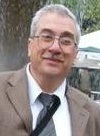Keynote Speakers
Evidence-based Technology: Case Studies and Interactions

Patrick C. K. Hung
Associate Professor, Faculty of Business and IT, University of Ontario Institute of Technology
(UOIT), Canada
Abstract:
Many enterprises need advanced educational technologies to enhance instruction and aid training to high quality personnel. Evidence-based technology provides a variety of contemporary solutions to identified training problems related to the assessment of profession training. The evidence-based technology focuses on empirical evidence and effectiveness to achieve specifictraining goals. Evidence-based training is an individual level of evidence-based process to achieve training goals from organization resources, process, evaluation and reflection, which is supported by information technology. Evidence-based technology emphasizes the critical appraisal of the trainees to the training content, which is beneficial for cultivating trainees' critical thinking and problem solving skills. This talk gives an overview of evidence-based technology with a couple of case studies.
Bio:
Patrick C. K. Hung is an Associate Professor at the Faculty of Business and Information Technology in University of Ontario Institute of Technology in Canada and an Adjunct Professor at the State Key Laboratory of Software Engineering at Wuhan University in China. He is also a Guest Research Professor at Kingdee in ShenZhen, China. In addition, he was a Guest Professor at Institute of Computer Science in University of Innsbruck, Austria and Department of Information Engineering and Computer Science, University of Trento, Trento, Italy. Hung has
been working with Boeing Research and Technology at Seattle in the USA, and he has filed two US patent applications on "Mobile Network Dynamic Workflow Exception Handling System" with Boeing. Before that, he was a Research Scientist with Commonwealth Scientific and Industrial Research Organization (CSIRO) at Canberra in Australia. He also has prior industrial experience in e-business projects in USA, Canada, China and Hong Kong. He is a founding committee member of the IEEE International Conference of Web Services, IEEE International Conference on Services Computing, and IEEE Congress on Services. He is an associate editor of the IEEE Transactions on Services Computing, International Journal of Web Services Research and International Journal of Business Process and Integration Management. Patrick is also a co-founder of Beaconwall Limited in Hong Kong Science Park with Prof. Jay Tashiro from Wolfsong Informatics in the USA.
Patrick has Ph.D. and Master of Philosophy Science in Computer Science from the Hong Kong University of Science and Technology in Hong Kong, Master of Applied Science in Management Sciences from the University of Waterloo in Canada, and Bachelor of Science in Computer Science at the University of New South Wales, Australia.
---------------------------
Security and Privacy of e-Health: Facts and Challenges

Prof. Sabah Mohammed,
Department of Computer Science
Lakehead University
Ontario-CANADA
Patient safety is an important issue in the healthcare industry. Electronic health records (EHRs) form an integral part of the healthcare system and it is imperative that EHRs are safe. EHRs have a variety of functionalities which include storage of health information and data, results management, order entry and management, decision support, electronic communication and connectivity, patient support, administrative processes and reporting and population management. Clearly, impaired integrity of EHRs could have undesirable outcomes in any of these areas. There is evidence that breaches of security have an impact on patient health care. Issues of confidentiality and abuse of data cause many healthcare providers to oppose the coordination of medical databases despite their potential benefits. Without question, therefore, information security of EHRs and privacy of patients are important issues. This invited speech introduced the current facts on achievements in this direction as well as the challenges that the healthcare system is facing with the introduction of new technologies (e.g. Cloud Computing) and with new health applications (e.g. biosurveillance).
About Prof. Sabah Mohammed
Dr. Sabah Mohammed started his career during 1977 as a Multimedia Maintenance Engineer working for Canon and Sony following his hobby in Electronics, although he completed his bachelor degree in Mathematics (HBSc 1977). From July 1979 he started his graduate studies where he received his degrees in Computer Science from Glasgow University-UK (PgD 1980, MPhil 1981) and from Brunel University-UK (PhD 1986). Since late 2001, Dr. Mohammed is a full Professor of Computer Science at Lakehead University. Formerly, from 1986-1995, Dr. Mohammed was an Assistant/Associate Professor of Computer Science at various universities including (BU, Amman University, Philadelphia University, Applied Science University and HCT). Sabah is interested in intelligent systems that have to operate in large, nondeterministic, cooperative, survivable, adaptive or partially known domains. Although his research is inspired by his PhD work on the employment of some Brain Activity-Structures based techniques for decision making (planning and learning) that enable processes (e.g. agents, mobile objects) and collaborative processes to act intelligently in their environments to timely achieve the required goals, Sabah extended his research vision to include constructivism and focus more on the nature of knowledge. Since knowledge is created by people and influenced by their values and culture, Sabah research stated to shift more towards net centric systems (e.g. Cloud Computing, Social Networking and Enterprise Systems, Web-Based Systems). During the last nine years, Sabah research is focused on developing ubiquitous healthcare systems that enable sharing securely knowledge and data in an effective way. In particular sharing Electronic Health Record (EHRs) over the Web is one of the very challenging problems that Sabah tries to solve. Sabah believes that finding good solutions for sharing EHRs requires approaches that cut across many different fields (e.g. Semantic Web, Web 2.0, Web 3.0, Ubiquitous Computing, Medical Informatics, XML Security and Artificial Intelligence).. He published several research articles in an attempt to promote EHRs interoperability and sharing. Recently he edited and authored a notable book on ¡°Ubiquitous Health and Medical Informatics: The Ubiquity 2.0 and Beyond by IGI Global that will be published during April 2010. |
